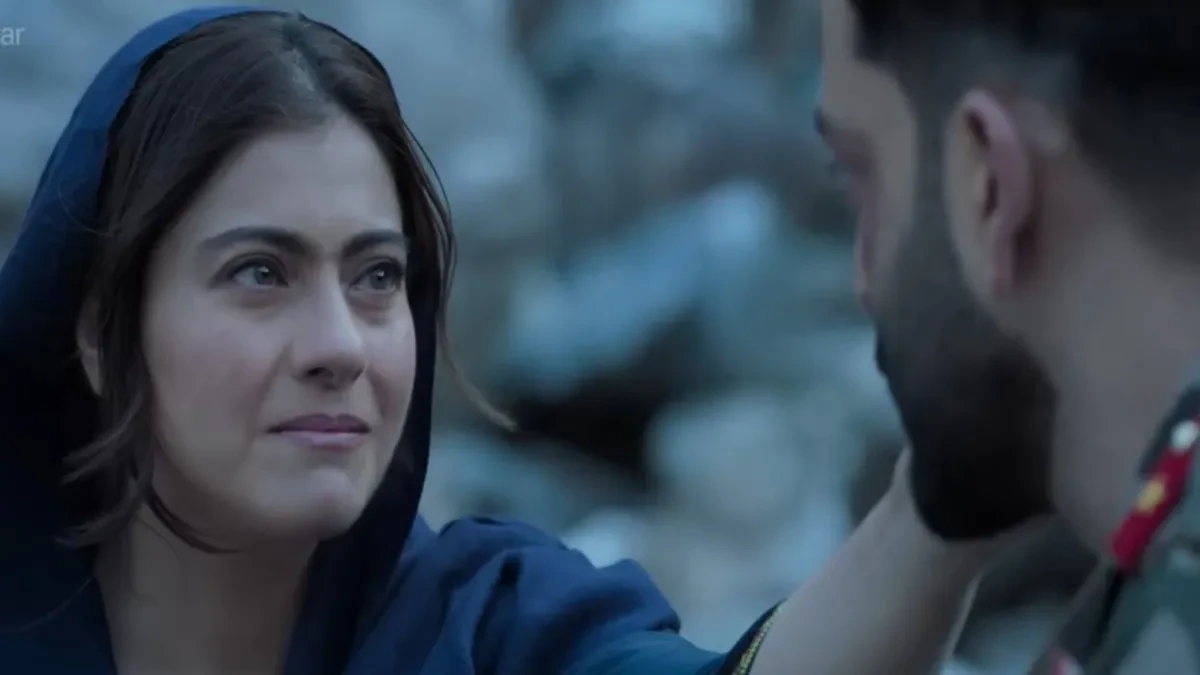Kayoze Irani makes his directorial debut with Sarzameen, a film set in contemporary Kashmir, blending patriotism, family drama, and identity politics.
Starring Prithviraj Sukumaran, Kajol, and Ibrahim Ali Khan, the movie aims high but delivers a conflicted narrative that lacks emotional depth and regional authenticity.
At the heart of Sarzameen is Colonel Vijay Menon (Prithviraj Sukumaran), who captures a separatist leader named Qaabil. His professional success contrasts sharply with his emotional disconnect at home, especially with his son Harman, who struggles with a stutter. Despite Meher (Kajol)’s attempts to bridge the gap between father and son, Vijay remains cold and rigid.
The story intensifies when Harman is kidnapped by Qaabil’s group. Soon after, a young man claiming to be Harman returns-played by Ibrahim Ali Khan-with a noticeably Kashmiri appearance that raises suspicions. Vijay, torn between logic and emotion, begins to question this new Harman’s identity.
While Sarzameen is visually stunning, its portrayal of Kashmir is shallow. Locals are mostly cast as terrorists, and military characters dominate the screen. The region’s culture-its language, music, and traditions-is sidelined. Conversations between Qaabil and his son happen entirely in Hindi, stripped of any regional dialect or flavor.
This narrow representation echoes the criticisms faced by earlier films, though Sarzameen isn’t as aggressive as Article 370. Still, it leans on stereotypes-for instance, equating eating with hands to a religious identity.
Ibrahim Ali Khan, in his second film after Nadaaniyan, appears awkward and uncertain. While this could have been molded into his character’s confusion, Irani’s direction doesn’t fully capitalize on it. More seasoned direction may have shaped Ibrahim’s rawness into something more compelling.
Kajol’s talent is underutilized. As Meher, her character serves little purpose beyond being a worried mother. The emotional arcs feel underwritten, and a scene between the young and older Harman feels unnecessarily abstract.
The film hints at tackling deep issues-nationalism, parent-child relationships, and personal identity-but skirts around them rather than engaging directly. It draws surface-level inspiration from Mission Kashmir, yet lacks the latter’s emotional and political complexity.
Despite Shankar’s dignified performance as Qaabil, his motivations remain unclear. The film touches on sensitive subjects without nuance, failing to ground its narrative in the complexities of Kashmir’s socio-political reality.
Sarzameen had the potential to blend a gripping patriotic thriller with a heartfelt family drama, but it falls short on both fronts. While visually appealing and occasionally thought-provoking, it lacks the depth, cultural sensitivity, and narrative clarity needed to truly resonate.
